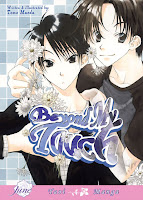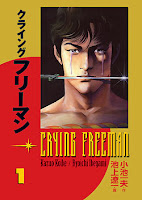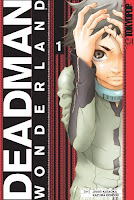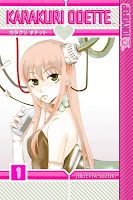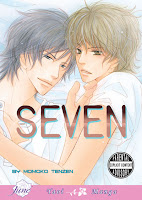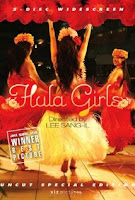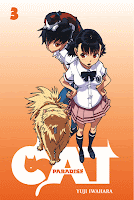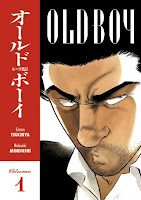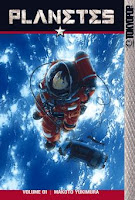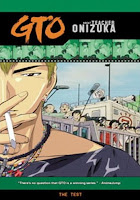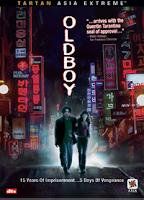 Creator: Makoto Yukimura
Creator: Makoto Yukimura
U.S. publisher: Dark Horse
ISBN: 9781616559212
Released: December 2015
Original release: 2001-2003
Awards: Seiun Award
Makoto Yukimura’s Planetes, a realistic, near-future science fiction manga series about space exploration and development, was originally released in English by Tokyopop. It’s a great series, and one that I’ve made a point to hold onto over the years. I was very pleased to learn that the manga was going to be brought back into print by Dark Horse—this time in a larger trim size, with more of the color pages, and with artwork that has been better reproduced. Dark Horse’s edition of Planetes consists of two omnibus volumes and it’s production quality makes it well-worth the upgrade. The first omnibus, released in 2015, contains the first and second volumes of the original Japanese edition as well as a small part of the third volume, which were published between 2001 and 2003. In 2002, Planetes earned Yukimura a Seiun Award for best manga. Planetes was also adapted into an anime which happens to be one of my favorite and most frequently rewatched series.
The year is 2074. Humankind has established numerous bases on the moon and has sent multiple expeditions to Mars. The next major goal in space exploration is to successfully man a mission to Jupiter in the hopes of harnessing the planet’s resources to support the ever-increasing energy needs of the solar system’s human populations. However, with the continued development of space comes a significant problem—the creation of vast amounts of waste. Junked and outdated satellites, exhausted fuel cells, and other debris orbit the Earth, endangering the lives of anyone who would attempt to leave the atmosphere. Hachimaki is a debris hauler, one of the unsung heroes who makes space travel possible. Along with the rest of the crew of the Toy Box, a decades-old ship that’s falling apart itself, Hachimaki either retrieves the debris drifting in space or drops it into the atmosphere to burn. It’s important and demanding work, not to mention dangerous, but the thankless job rarely receives any recognition.
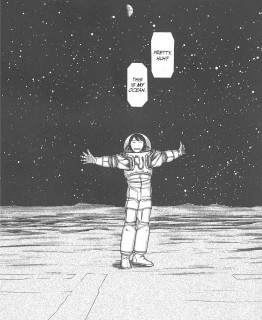 Planetes is a manga about many different things—scientific progress, socioeconomic tensions, geopolitical discourse, and so on—but more importantly it’s a series about many different kinds of people. It’s about the dreamers who are inspired and compelled to reach for the stars, the scientists and engineers who are focused on advancing technology above all else, the medical researchers who are developing treatments and cures for space-caused disorders, and the people for whom leaving Earth is simply a way of making a living. But it’s also about all of the loved ones the spacefarers leave behind, the families and friends who can do little but hope and wait for their safe return. While incorporating into the story all of the basic, mundane, and day-to-day requirements necessary for life in space, Planetes explores the complex human relationships that support and make that life possible.
Planetes is a manga about many different things—scientific progress, socioeconomic tensions, geopolitical discourse, and so on—but more importantly it’s a series about many different kinds of people. It’s about the dreamers who are inspired and compelled to reach for the stars, the scientists and engineers who are focused on advancing technology above all else, the medical researchers who are developing treatments and cures for space-caused disorders, and the people for whom leaving Earth is simply a way of making a living. But it’s also about all of the loved ones the spacefarers leave behind, the families and friends who can do little but hope and wait for their safe return. While incorporating into the story all of the basic, mundane, and day-to-day requirements necessary for life in space, Planetes explores the complex human relationships that support and make that life possible.
Planetes spends a fair amount of time delving tin the psyches of its characters. This is most obvious with the manga’s treatment of Hachimaki, who goes through an extreme psychological crisis and transformation after a traumatic accident, but the other characters have their own struggles, too. Their evolving relationships with one another and their changing attitudes towards space are critical components of Planetes, lending an additional sense of realism to the series. Yukimura doesn’t just limit himself to the personal aspects of the characters’ lives in the series, he also addresses wider societal issues and concerns such as inequality, terrorism, and war. It takes a few chapters for Yukimura to fully settle into the tone and art style for the series, but from the very beginning Planetes is an excellent work of science fiction, balancing humor and pathos while maintaining a largely optimistic outlook on the future believably punctuated by some of the harsher realities of life.

